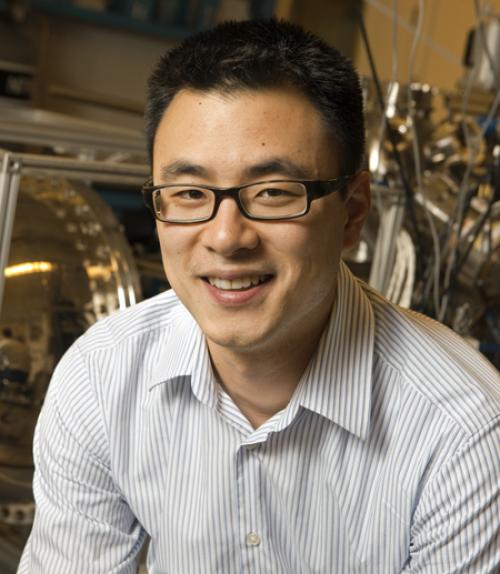Superconductivity remains one of the fastest evolving topics in modern physics. Recent research has shown the promise of interfacial and hybrid superconductors—artificially engineered systems in which superconductivity emerges from interactions between dissimilar materials.
To synthesize, detect, and investigate this emerging class of superconductors, Kyle Shen, Physics, is combining molecular beam epitaxy and other advanced materials synthesis technologies with a suite of in situ tools including angle-resolved photoemission spectroscopy and in-vacuum electrical resistivity measurements. Using molecular beam epitaxy synthesis, researchers will integrate materials with atomically precise interfaces. When combined, each component will provide an important feature chosen to enhance superconductivity. The Shen lab will leverage unique experimental capabilities to detect and investigate systems in which superconductivity may be fragile or exist only at surfaces or interfaces. Among the building blocks that this project will investigate are monolayers of iron selenide (FeSe) and other unconventional superconductors grown on targeted substrates with desired properties; correlated two-dimensional antiferromagnetic insulators that are closely related to the parent cuprates; and enhanced superconductivity at the surfaces of quasi-two-dimensional materials doped with alkali and alkaline metals such as potassium, rubidium, and calcium.
This research is aimed at generating and characterizing novel superconductors with potential applications in sensing, imaging, electronics, energy transport and storage, propulsion, and quantum information processing.




